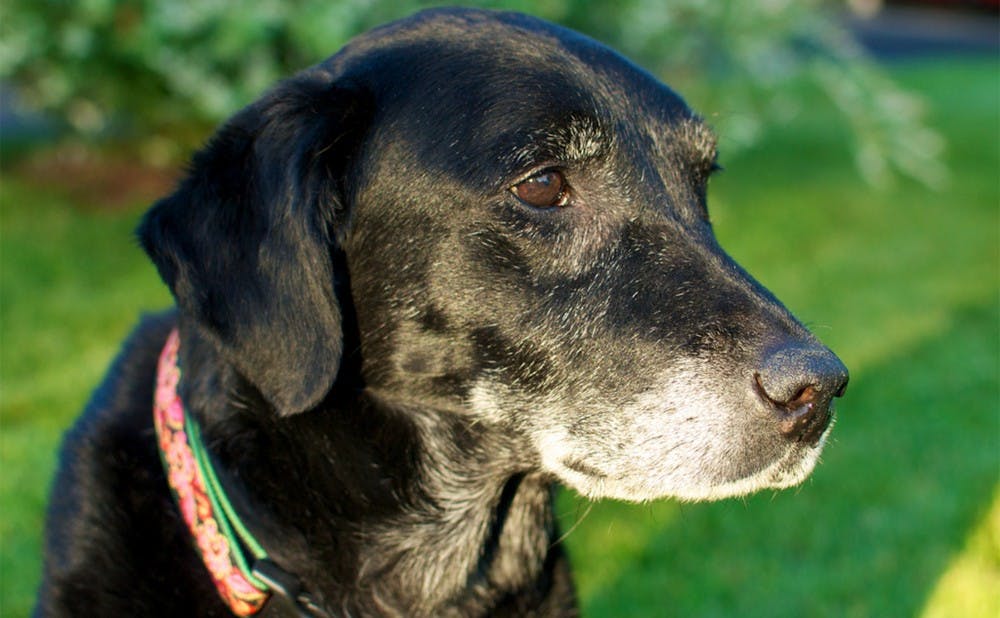Some cancer labs might find themselves with kibble and drool.
For two years, doctors from the Duke Cancer Institute have worked with doctors from University of North Carolina at Chapel Hill and veterinarians from North Carolina State University to apply findings from research on dogs with cancer to help find cures for humans. The researchers hope to take advantage of the similarities between dogs and humans.
“It’s a completely different game now because of the emphasis of genomics and looking at the target identification and biomarkers,” said Mark Dewhirst, vice director for basic science at the Cancer Institute. “The canine model has so much more to offer than just another patient you can treat. It’s a very forward-looking opportunity that’s looking to take advantage of what the dog can offer in terms of individualized care.”
The collaboration focuses on cancers that behave similarly in dogs and humans like lymphoma, soft tissue sarcoma and bladder cancer among others. Dewhirst said that doctors are using the dogs to help learn more about the roots of the cancers and what causes them.
“We can use the dog because the genetics in a dog are easier than they are in a human," he said. "It makes it much more conducive to finding things out.”
Dewhirst—who was mentored by one of the pioneers in cancer research, Ed Gillette, in the mid-1970s as a Ph.D. student at Colorado State University—is working with research methods that Meurs said are more effective than traditional laboratory practices.
Typically, cancer research is performed on mice, rats or other rodents by inducing a form of cancer in them, said Kathryn Meurs, associate dean of research and graduate studies at N.C. State. Using those animals was helpful because it would allow researchers to study a specific type of cancer and follow it along. However, Meurs added that research on rodents was not without its own pitfalls.
Since rodents are very small and different physiologically from humans—in terms of vitals like heart rates and metabolisms—they are better for understanding basic information, Meurs said. But because dogs are much closer in size to humans, their physiological markers are much more similar and comparable to humans.
Meurs noted that another advantage of using dogs is that their experiences are more comparable to humans. He indicated that having prior knowledge of the dogs’ environment and medical history in past generations also makes it easier for researchers to determine which external factors—outside of genetics—may trigger some type of cancer.
“If you study cancer in a mouse or a rat, you study it in a classic box in a laboratory. They eat a certain type of food and breath a certain type of air,” Dewhirst said. "But most people’s pets tend to live very closely with them. They are breathing the same air, drinking the same water, playing on the same grass that children play on.... It’s a much more similar model than a mouse living in a laboratory research environment in a concrete building.”
Duke and N.C. State have a long history of collaborating, including a program in which dogs were bussed back and forth between the two campuses for research. However, the program concluded in 2009 after funding ended, Dewhirst said.
Meurs explained that the partnership, which is through the N.C. State veterinary school’s Comparative Medicine Institute, came about in 2014 after a discussion between Dr. Paul Lunn—dean of NC State's veterinary college—and Michael Kastan, executive director of the Duke Cancer Institute.
Dewhirst said that the V Foundation for Cancer Research has backed the new project. C30 Cancer grants are also helping to fund the research.
Although it is too early to get tangible results back from the program, Dewhirst is still enthusiastic about its future.
“We’re in the second year of the funding,” Dewhirst said. “The [research] from the first year, we’re making progress on. They still have funding, so it’ll be interesting to see what the results will be."
Get The Chronicle straight to your inbox
Signup for our weekly newsletter. Cancel at any time.

Managing Editor 2018-19, 2019-2020 Features & Investigations Editor
A member of the class of 2020 hailing from San Mateo, Calif., Ben is The Chronicle's Towerview Editor and Investigations Editor. Outside of the Chronicle, he is a public policy major working towards a journalism certificate, has interned at the Tampa Bay Times and NBC News and frequents Pitchforks.

